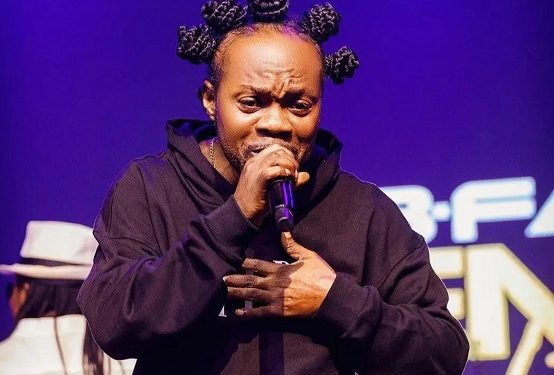Ghana is in mourning following the confirmed passing of one of its most iconic musical figures, Charles Kwadwo Fosu, affectionately known as Daddy Lumba. The legendary highlife musician died in the early hours of Saturday, July 26, 2025, at the Bank Hospital in Cantonments, Accra, after a brief illness. He was 60 years old.
Daddy Lumba’s death has sent shockwaves across the nation and beyond, with fans, fellow musicians, and dignitaries expressing their grief and paying tribute to a man whose music defined generations. According to a statement released by the Fosu family through their legal representatives, Daddy Lumba was more than just a musician—he was a cultural icon whose voice and lyrics became the soul of a nation.
Born on September 29, 1964, in Nsuta in the Ashanti Region, Daddy Lumba began his musical journey in the 1980s. He first rose to prominence as part of the Lumba Brothers duo alongside Nana Acheampong, with their debut album Yɛɛyɛ Aka Akwantuo Mu. His solo career soon took off, and over the next four decades, he released more than 30 albums, including timeless classics such as Aben Wɔ Ha, Theresa, Yentie Obiaa, and Playboy.
His music, known for its poetic lyricism, infectious melodies, and emotional depth, resonated deeply with audiences across Ghana and the diaspora. Lumba’s ability to blend traditional highlife rhythms with contemporary sounds helped modernize the genre and ensured its relevance across generations.
Beyond his music, Daddy Lumba was a mentor and entrepreneur. He founded DLFM radio and a music production studio, nurturing talents like Ofori Amponsah. His influence extended far beyond the studio, shaping the sound and direction of Ghanaian music for decades. His 2008 hit Mpempem Do Me even gained international recognition, featuring on King Charles III’s Commonwealth Day playlist in 2024.

At the time of his passing, he was reportedly working on his 34th studio album, Nnipa Fon Na Ɛka Nsɛm Fon, a project that fans were eagerly anticipating.
In the wake of his death, hundreds of fans have gathered outside his East Legon residence in Accra, paying their respects and sharing memories of how his music touched their lives. Social media platforms have been flooded with tributes, with many describing him as the heartbeat of Ghanaian music.
The Fosu family has requested privacy as they navigate this profound loss and have indicated that funeral arrangements will be announced in the coming days.
Daddy Lumba’s legacy is indelibly etched into the fabric of Ghana’s cultural and musical identity. His voice may be silent, but his music will continue to echo through time, inspiring future generations and reminding the world of the power of highlife.

